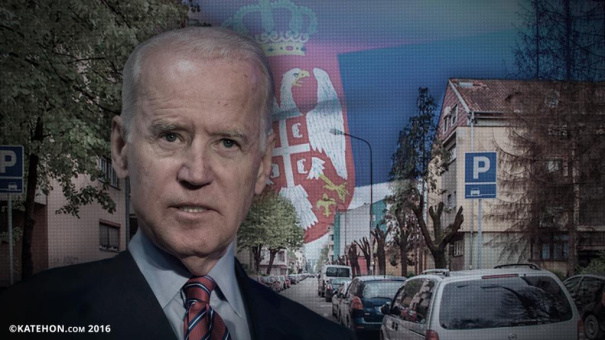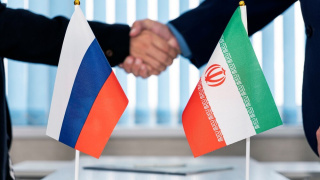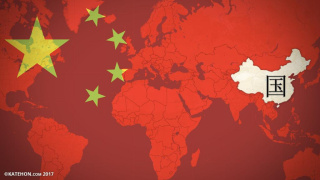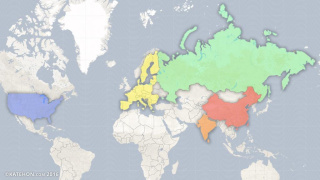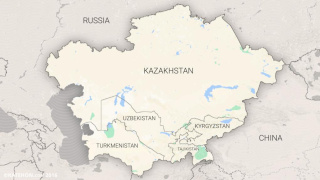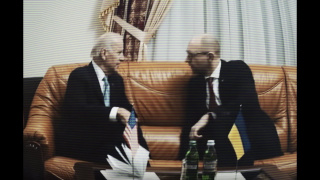In the Wake of Biden’s visit: Serbia at a geopolitical crossroads
US Vice President Joseph Biden recently completed a “three day visit to Serbia” from august 16th-18th. The phrase in parentheses is the spin that Serbia’s puppet government in Belgrade put on it. He actually spent only a couple of hours in Belgrade, just enough to deliver instructions. From there he flew off to Pristina to spend the bulk of his time on NATO-occupied Serbian territory in the province of Kosovo with his real friends, who were put in charge as a result of the 1999 aggression against Yugoslavia.
It is assumed that Biden’s visit will be the last to the Balkans by a senior Obama Administration official, so it may be of more than passing significance. What kind of message did Biden bring to Serbia and the occupied province of Kosovo?
There is no reliable way of answering that question other than by carefully observing the Serbian government’s moves in wake of Biden’s visit, which should give us the necessary clues. Official statements make it clear that the overall purpose of the visit was to strong-arm the Serbian government into accelerating its alignment with NATO and the EU, organizations which are practically synonymous. Explicit (and rather ominous) reference was made to Serbia’s standardization of arms and equipment with NATO. Another important “unfinished business” item was to put the final touches on Serbia’s abandonment of its NATO-occupied province of Kosovo. Next month, for no discernible reason other than to serve as an otherwise empty, symbolic gesture of Western-mandated “regional cooperation,” the Serbian cabinet will hold a joint session with not just its counterparts from Albania, but also with officials of breakaway Kosovo, who will attend as a government entity even though Kosovo is legally a part of Serbia. Needless to say, the agenda of “regional cooperation” and strict adherence to Biden’s injunctions must prevail, and the separatists will not be arrested for treason at this meeting by the Serbian authorities.
An important additional feature of Biden’s ultimatums, according to well-informed sources, is explicit policy coordination with the Western power bloc on an increasing number of levels, including adopting sanctions against Russia. It does not matter that at this late stage of the game it is clear that the sanctions imposed by economic powers far mightier than Serbia have been a fiasco and that Serbia’s participation in the Western sanctions wolf pack will have no tangible economic impact whatsoever on Russia’s economy. But being forced into taking such a disloyal decision will symbolically confirm Serbia’s submission, and that is the point of it.
One of the details noted by some observers is the American side’s admission that US legal advisors helped the Serbian government make reforms to its criminal law code, police institutions and whistleblower protection measures. This, indeed, would constitute deep involvement in another country’s internal arrangements. Even those who have long suspected that American influence in Serbia was strong may be dismayed by the revelation that Washington is directly “helping” Belgrade even to write its laws.
But that is only the tip of the iceberg. Western emissaries, including their local Serbian “NGO” hirelings, are in charge not just of writing some of Serbia’s laws but are also stealthily reshaping the country’s other strategic institutions as well. For instance, Western “advisors” are rewriting Serbian schoolbooks from the low grades on up. It recently came to light that Serbian Interior Minister Nebojša Stefanović, who heads a highly sensitive “power institution” by anyone’s standards, has been discussing “enhanced cooperation in the fight against organized crime and terrorism” with the US ambassador in Belgrade. But even that is just the sugar coating designed to make “cooperation” at this level more publicly palatable. The official news agency report goes on to reveal an even deeper dimension by saying that Stefanović and the ambassador also „discussed developing further the professional skills of Interior Ministry officers through a variety of programs that the US government is implementing in Serbia.“
It seems that American partners are finding avid students in one of the key establishments of Serbia’s security system.
Western officials are in fact ensconced in all major Serbian government offices and ministries, purportedly for the purpose of offering advice on better performance. That was at least the public rationale behind the “delivery unit” scam that was perpetrated by the un-indicted 1999 Kosovo war criminal Tony Blair, when slightly over a year ago his firm was hired to impart its management wisdom to Serbia’s government. But in reality, of course, they are there in a supervisory and intelligence capacity.
A likely forthcoming step is that the Serbian government will use its current parliamentary majority to remove the constitutional provision which mandates that Kosovo is an inalienable part of Serbia. Such is a key feature of the“normalization of relations” with Kosovo plan ordered by Biden. The otherwise pointless joint cabinet meeting including Kosovo “ministers” in a setting that implies separate statehood is an incremental step in that direction and one of the intended fruits of Biden’s visit.
As a counterweight to these considerations, some point to the planned Russian-Serbian military drills in September, near the Croatian border. From this and other evidence of a similar nature, the conclusion is drawn that the Serbian government is engaged in an intricate “balancing act” between the two blocks, and even deserves some praise for its diplomatic adroitness.
However, facts belie such a naïve assumption. One hundred Serbian soldiers are taking part in the “Combined Resolve VII” maneuvers organized by the NATO European “Training Command,” which began in Germany on August 8th and will last through September 15th 2016. More than a dozen other NATO and Partnership for Peace countries are also participating. The information was downplayed by the Serbian media (in contrast to the exaggerated attention paid to the exercise with Russian forces) but in an almost boastful manner it was made public by “Balkan Insight” (BIRN), a Western-affiliated and funded “NGO”. But, as we learn, this is not a unique example of this type of Serbia – NATO “cooperation.” For 2016 alone, according to BIRN, a total of 127 joint military exercises between Serbia and NATO have been planned. According to the Statement released by the Serbian Defense Ministry in March 2016, after Defense Minister Zoran Djordjević’s meeting with the US deputy assistant Secretaqry of Defense Michael Carpenter, “bilateral military cooperation is the most developed segment in the overall relationship between the two countries.”
It is therefore not surprising that the Serbian defense ministry spokesman should have referred to the “enhancement of interoperability” as one of the principal objectives of these joint military ventures. “Interoperability” is, of course, the code word for full-spectrum compatibility in wartime situations between diverse armies, making it possible for them not only to conduct harmless exercises but, more importantly, undertake joint offensive military operations.
It is theoretically possible, of course, that the more sanguine observers are privy to some strategic information which the rest of us do not have, but a safer bet would be that they are deluding themselves with regard to Serbia’s “balancing act.” The Serbian government is as entirely in the pocket of its Western puppet-masters as the Serbian people are committed to the closest possible alliance with Russia and the Eurasian bloc. (According to the latest polls, over 80% are opposed to NATO, and 74% favor greater cooperation with Russia).
It is becoming increasingly clear to even the most unimaginative observers that Serbia’s governing clique is under ferocious pressure to accept a geopolitical choice that is patently immoral, opposed to their country’s values and traditions, and contrary to the national interests. The time has once again come for “Serbia to find its soul.” That was Winston Churchill’s memorable remark made in a different context, but in an eerily similar situation, following the 1941 popular coup in Belgrade which deposed a craven regime that in its time made a disastrously wrong geopolitical choice by signing a short-lived pact with the Axis. The way for Serbia to find its soul today is to urgently start working to restore its natural alliances and to forswear the execrable political choices that are being made for it by the country’s corrupt elite.
